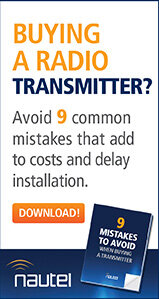Using Music Legally in Podcasts
[March 2022] More and more stations – and independent producers – are making podcasts. If it is nothing more than you or you and a guest talking, you can do pretty much whatever you want. But if you include copyrighted material, such as music, pictures, or video you need to be careful how you handle it. Let us focus this time on music. Here is a quick summary of what you need to know about podcasts and music copyright.
Podcasts are growing exceptionally fast, and the production quality is constantly improving.
In order to keep up with the competition, many podcasters desire high quality, rights-included music in their productions.
However, as a podcaster, finding music you can use for your show can be difficult. Some podcasters use top chart music without the proper clearance rights and that can ultimately result in a cease & desist demand letter or immediate court action. Such a risk is especially true if you crosspost your content to places such as YouTube, Spotify, Instagram or Facebook.
Here are some Questions & Answers to help you understand these matters:
YOU HAVE QUESTIONS, WE HAVE ANSWERS
Q: Why is podcasting different from streaming and what is blocking podcasters from playing music?
A: The difference is the rights that are involved.
Streaming involves the “public performance right.”
There are organizations in place to collect public performance royalties that cover both the musical compositions and the recorded songs. For streaming, if you pay ASCAP, BMI and SESAC – and now GMR – you pretty much have the public performance rights to all musical compositions – also called the “musical work” – the words and notes of a song. If you pay SoundExchange, you get the rights to publicly perform all the recorded songs legally released to the public in the United States. With the rights to publicly perform the musical compositions and the sound recordings, you have what you need to do an Internet radio-type of streaming operation.
Podcasts, though, are not viewed as public performances.
Instead of transmitting programming like a radio station, a podcast is viewed as a recording of the program – listeners are making copies of the podcast program onto their smartphone or tablet.
Under the Copyright Act, a recording does not involve the public performance right, but instead the right to make “reproductions” of the musical work and the sound recording. As the music is combined in a podcast with words and other sounds in the recording, it also invokes another right of the copyright holder to authorize “synch rights” or “master use rights.”
To get any of these rights, you need to go directly to the copyright holders – usually the publishers for the musical works and the record companies for the sound recording – and negotiate for each song that you want to use.
WHAT CAN I USE – AND WHAT CAN I NOT USE?
Q: Is it legal to stream any music I like in a podcast?
A: It is not legal to stream any music unless you have the rights to do so.
Songs fall under copyright law and you need a license to legally use them. Acquiring the rights to use a song usually means having to pay the copyright holder whether in a single payment (royalty-free) or pay per play (royalties). If you use a song that you do not have the right to use, you could face a Digital Millenium Copyright Act takedown action and corresponding lawsuit.
Q: Do I need to have the rights to music I use in my podcast?
A: Yes.
There are rare occasions where you can use music, such as in the case where artists release their music under copyright-free publications. There is also something called Creative Commons (“CC”) licensing, but it comes with specific requirements and limitations. However, you will not find mainstream music under either of those licensing types, and artists offering them and few and far between.
USING ONLY A SMALL PART
Q: What if I only use a track in my podcast as an intro?
A: Unfortunately, using a track as the intro to a podcast will not make a difference as it relates to copyright. Without having paid for a license to the song, using music without permission violates copyright law.
Q: Can I use just a small part of a song without issue?
A: Absolutely not.
Whether you play five seconds of a song or the complete tune without having paid for a license to the song, using such music without permission violates copyright law – unless the use is for purposes of educational commentary, educational criticism, or parody, which triggers “fair use.”
WHAT ABOUT SAMPLES
Q: Can I use the music sample for the podcast if it is altered and not easily recognizable?
A: You cannot use any sample without infringing copyrights, regardless of how short or how much altered.
Court rulings in the early 2000s on music sampling effectively eliminated the usage of “fair use” for a very small, altered part of the sample. It does not matter if the sample is basically unrecognizable.
Q: Can a music sample be used in remixes and arrangements?
A: No, it is the same situation as described above. Taking a sample and rearranging it without clearance would still violate copyright.
Q: Can a sample be used in the ad of the product I am promoting for a sponsor?
A: No.
Not even if the sponsor of your show has used this sample in any other commercial you have heard publicly. If your sponsor asks you to emit any specific ad already recorded with samples, make sure that the sample has been cleared. Endorsing a product with a protected sample not only may infringe the copyrights but also can violate the right of publicity. This is because it may give the impression that the author of used music endorses the product also. The usage of samples in ads requires an additional type of clearance.
SIZE DOES NOT MATTER
Q: There are hundreds of thousands of smaller podcasts that average just a couple of hundred downloads so cannot we assume that they are so small that no one is going to listen or find that they are playing music?
A: In connection with any sort of copyright violation you always hear that argument.
You may think “If I do it, no one is ever going to notice and I’m never going to get caught.” But, while your podcast may only have a few people listening at first, if it goes viral and is heard by thousands of people – which presumably is what every podcaster is hoping for – a rights holder can find out about the unauthorized use.
And even if you just have a very small audience, if the wrong person hears it, you may get a demand letter or some other claim for compensation.
HOW MUCH IS IT GOING TO COST?
Q: What type of penalty money are we talking about here?
A: There is this concept under the Copyright Act called “Statutory Damages.”
That means that the copyright holder does not need to be able to prove that they were actually damaged by your use of their music. All they have to prove is that you infringed on their rights, and they can be entitled to collect damages. A court looks at the infringement and can assess damages of anywhere from $500 to $150,000 per infringed song. Noncommercial users who were acting in good faith end up at the lower end of the scale. Commercial companies, who knew that they needed rights and just did not bother to obtain them, end up owing higher damages.
Q: How do I pay for music to use in my podcast?
A: In order to get the right to play music on your podcast, you will need to acquire the right to do so.
This means paying through a licensing service. Many mainstream labels offer packages to be able to license an artist song, but that can be costly. Instead you can look to a licensing service such as Rightsify, SourceAudio, and Epidemic Sound – to name just a few sources. Usually these services provide full access to unlimited play and streams with no royalties. You only pay a monthly subscription fee.
Q: Do I need to pay licensing fees if I do not make any money from my podcast?
A: If you wish to use music in your podcast then you must pay music licensing fees regardless of the profitability of your endeavor.
PUBLIC DOMAIN AND PRIVATE LIBRARIES
Q: How can I tell if music falls within the Public Domain?
A: Music and lyrics written prior to 1922, in the United States are considered Public Domain. No one can claim ownership and therefore you can arrange, reproduce, perform, record or publish it. If you use work created in other countries you should refer to that particular country’s copyright laws concerning public domain.
Q: Can I use music from my personal collection in my podcast?
A: You cannot use music from CD’s that you own as background music unless you get a license to do that. Such activity is not “fair use.”
– – –
Founder and managing member of Tepper Law Firm, LLC, Cary Tepper has had, since 1985, an extensive telecommunications law practice representing several hundred radio and TV stations with regard to broadcast regulation, business negotiations, acquisitions and mergers, facility modifications, radio spectrum allocations, and administrative hearing litigation.
Contact Cary Tepper by email at tepperlaw@aol.com or by phone at: (301) 718-1818.
Are articles like this helpful to you? If so, you are invited to sign up for the one-time-a-week.BDR Newsletter.
It takes only 30 seconds by clicking here.
– – –

